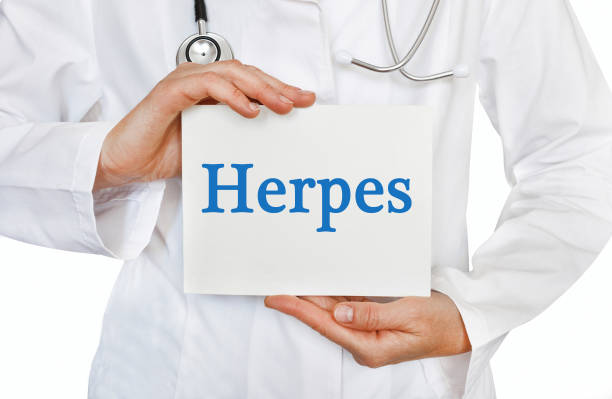What is herpes?
 As the name says, Herpes or Herpes Simplex Viruses, are skin and mucous infections caused by the HSV (herpes simplex virus). It is very common, and it can affect any part of the skin and the mucosa, but it is more common in the mouth, the external genitalia and the anal region.
As the name says, Herpes or Herpes Simplex Viruses, are skin and mucous infections caused by the HSV (herpes simplex virus). It is very common, and it can affect any part of the skin and the mucosa, but it is more common in the mouth, the external genitalia and the anal region.
2 types of Herpes Simplex Virus have been identified, type 1 and type 2. The HSV-1 is usually related to oral herpes, so it usually causes cold sores and fever blisters in the face. HSV-2 usually causes genital herpes outbreaks. That is why many people consider Herpes Simplex Virus type 2 a sexually transmitted infection. However, it is very important to say that this is not limiting, the HSV-1 can affect the genitals and, less frequently, the HSV-2 the face.
Some statistics say that around 50% of United States population has the HSV-1. Likewise, around 15% of the people between 14 and 49 years of age in the United States have the HSV-2.
What are the herpes symptoms?
Herpes is a long-term condition in which the virus remains hidden in the body. So, a person can become infected with HSV-1 or HSV-2 without experiencing symptoms for months or even years. On the contrary, some people experience some symptoms between 2 and 12 days after the contagion.
Herpes Simplex Viruses can affect the skin and mucosa in different parts of the body, but, as it was said before, the most common locations are the mouth, the anal mucosa and the genitals. The main symptom of Herpes is the presence of painful blisters in the affected areas (face, penis, vagina, cervix), which are called cold sores when they are located around the mouth. These blisters can break spontaneously and direct contact with their contents can cause the lesions to spread to other parts of the body or for another person to become infected.
When primary HSV infection causes symptoms, the person may also experience itching, tender and enlarged lymph nodes, fever and malaise. When HSV affects the genitals, it can cause painful urination and vaginal discharge. And finally, if it affects the anal mucosa, it can cause painful defecation.
It is also important to say that many people have recurring herpes, which means that they will experience several outbreaks of herpes throughout their life. This occurs especially if the person has a weakened immune system or if he/she is under a lot of stress. However, over time, the asymptomatic periods become longer, and the outbreaks tend to be less severe.
What is the Herpes Treatment?
There is no cure for the Herpes Simplex Viruses and the ulcers usually heal without leaving scars. However, you can use some home remedies or treatments to relieve the symptoms, to help with reducing the time of the outbreaks and decreasing the number of outbreaks.
If the person experiences severe pain, he/she can take over-the-count painkillers like acetaminophen or ibuprofen. Applying petroleum jelly can also reduce the pain and itching in the affected area.
Other general measures like to avoid wearing tight cloth in the affected area and refraining from sexual activity can also help to reduce the pain and other herpes symptoms. It is also recommended for the people with genital sores to take warm and lightly salted baths, because this helps to relieve the pain and the itching.
Related Read: How to Cure Herpes - Herpes Cure or Treatment
The antivirals Famvir, Zovirax and Valtrex have been approved to treat the herpes symptoms and prevent the viral multiplication. However, you must remember that no drug can cure herpes. The antiviral episodic treatment of herpes consists in a 5-day course of antivirals, and it is recommended by doctors if the person experiences six or less outbreaks in 1 year. On the other hand, the suppressive treatment consists in taking daily antiviral treatment indefinitely, so it is only recommended for people who experience more than 6 recurrences a year.
Must Read: Herpers Dating Sites
